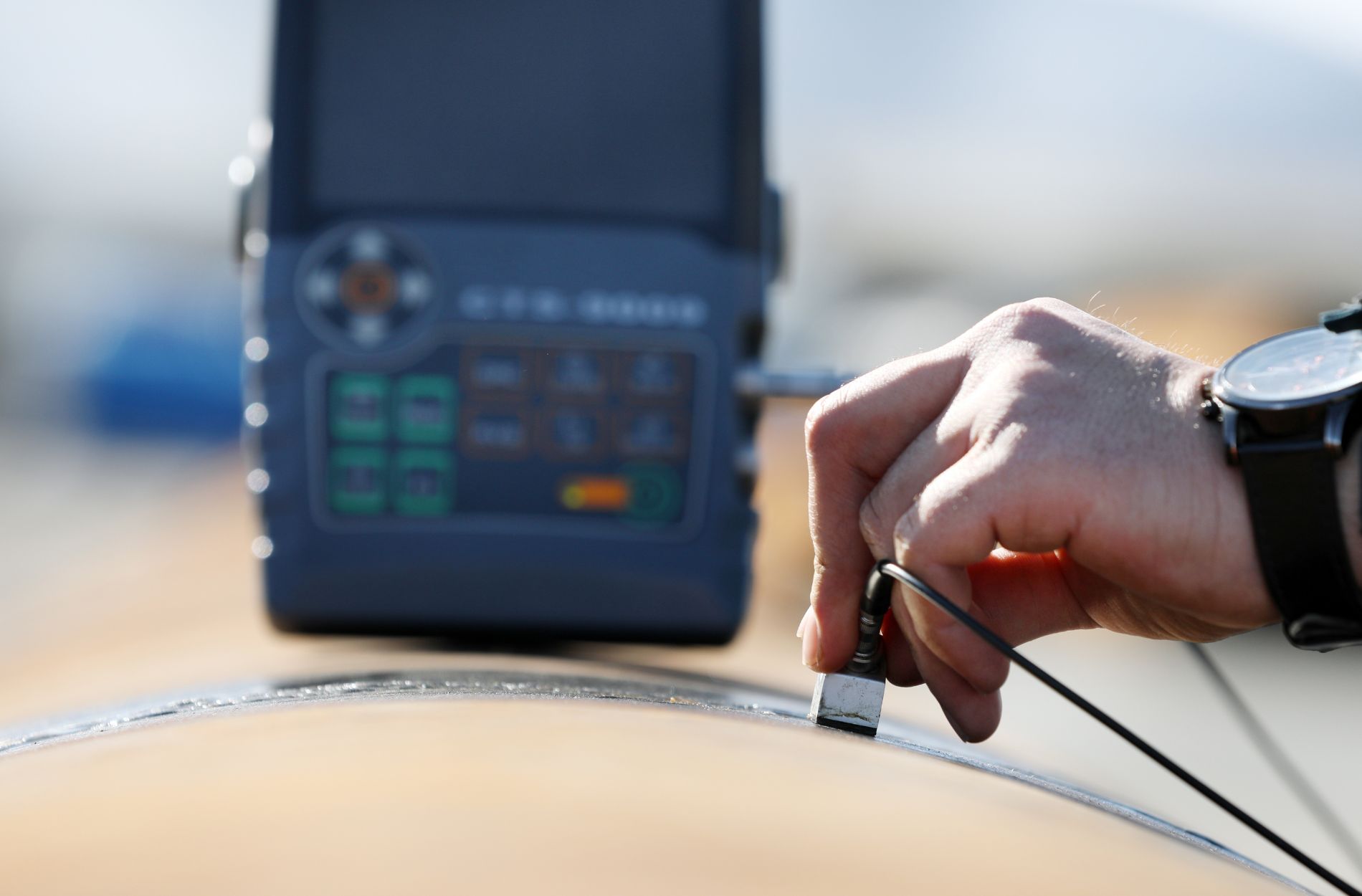
Nondestructive testing (NDT) is a vital field that encompasses a wide variety of inspection methods and techniques, enabling professionals to assess the integrity of materials, components, and structures without causing any damage or affecting their functionality. NDT plays a crucial role in industries such as aerospace, automotive, petrochemical, and construction, ensuring safety and reliability across countless applications. Pursuing a career in NDT can provide numerous opportunities and professional growth as the demand for NDT professionals continues to increase.
In this article, we will delve into the world of nondestructive testing, explaining the main NDT methods and certification levels to help you gain a solid understanding of this dynamic field. We will discuss the practical applications of these techniques, as well as the necessary training and certification requirements needed to thrive in the NDT industry.
Are you intrigued by the potential of a career in nondestructive testing and eager to embark on this exciting journey? Discover the skills and knowledge you need to succeed with National Inspection Academy’s wide range of NDT training programs tailored to meet your unique educational and professional goals. Your future starts now, with National Inspection Academy as your trusted partner in nondestructive testing education.
Exploring the Core NDT Methods
Nondestructive testing includes a diverse range of methods and techniques, each with distinct advantages and applications. Understanding these core NDT methods is essential for aspiring professionals in the field. The main NDT methods include the following:
1. Ultrasonic Testing (UT)
Ultrasonic Testing utilizes high-frequency sound waves to detect flaws, cracks, and other structural defects in various materials. With its ability to inspect both surface and subsurface defects, UT is a versatile and reliable testing method commonly used in industries such as aerospace, power generation, automotive, and oil & gas.
2. Radiographic Testing (RT)
Radiographic Testing involves the use of X-rays or gamma rays to inspect the internal structure of materials and components. RT can reveal hidden defects such as voids, cracks, and flaws in metal welds. Widely utilized in industries like aerospace, manufacturing, and construction, RT is an indispensable tool for ensuring material integrity.
3. Eddy Current Testing (ECT)
Eddy Current Testing is an electromagnetic inspection method that detects surface and near-surface defects in conductive materials. ECT is particularly suitable for inspecting non-ferromagnetic materials such as aluminum, copper, and titanium alloys. Common applications include the inspection of welds, tubing, and aircraft components.
4. Magnetic Particle Testing (MPT)
Magnetic Particle Testing employs magnetic fields to detect surface and near-surface discontinuities in ferromagnetic materials like iron and steel. MPT is a versatile and sensitive testing method commonly used in various industries, including automotive, power generation, and construction.
Understanding NDT Certification Levels and Requirements
In order to pursue a career in nondestructive testing, professionals must obtain relevant certifications. These certifications attest to an individual’s competence and expertise, ensuring adherence to industry standards. The American Society for Nondestructive Testing (ASNT) establishes three NDT certification levels:
1. Level I Entry-Level Technician
A Level I NDT Technician performs specific tests under the supervision of a Level II or III professional. Level I technicians undergo training in one or more NDT methods and must demonstrate practical skill and understanding through both written and practical examinations.
2. Level II Independent Inspector
A Level II NDT professional is qualified to independently perform NDT inspections, interpret and evaluate results, as well as provide guidance to Level I technicians. Level II professionals must demonstrate a more in-depth understanding of multiple NDT methods through a combination of education, experience, and successful completion of advanced examinations.
3. Level III Expert Practitioner
Level III NDT professionals possess comprehensive knowledge and expertise in nondestructive testing, typically specializing in specific methods. As the most advanced certification level, Level III professionals can develop NDT procedures, create inspection programs, train and supervise other NDT technicians, and make critical decisions regarding component and material integrity. Achieving Level III certification requires extensive experience, advanced training, and exceptional performance on both general and method-specific exams.
Choosing the Right NDT Training Program
Pursuing the appropriate NDT training program is crucial for developing the necessary skills and expertise to excel in the field. When selecting an NDT training program, consider the following:
- Relevance: Choose a program that focuses on the specific NDT methods and industries you are interested in pursuing.
- Accreditation: Ensure the program is accredited by a recognized organization, such as ASNT or the International Organization for Standardization (ISO).
- Hands-on Experience: Opt for a program that emphasizes practical, hands-on training in addition to theoretical knowledge.
- Instructor Expertise: Seek programs with experienced instructors who possess real-world knowledge and can share valuable insights.
Kickstarting Your NDT Career with National Inspection Academy
Take the first step toward a successful and rewarding career in nondestructive testing with the help of National Inspection Academy’s world-class NDT training programs. We offer a diverse range of courses tailored to meet your unique goals, ensuring you gain the skills and certifications necessary to thrive in the NDT industry.
Conclusion: Your NDT Journey Begins with National Inspection Academy
Embarking on a career in nondestructive testing is an exciting and fulfilling endeavor. With an understanding of core NDT methods and certifications, you are well-prepared to pursue the training and qualifications required to achieve professional success in this dynamic field.
National Inspection Academy offers a wide range of NDT training programs in Baxter tailored to meet your unique educational and professional goals. Discover the skills and knowledge you need to succeed and start your journey towards a successful career in nondestructive testing with National Inspection Academy as your trusted partner.
